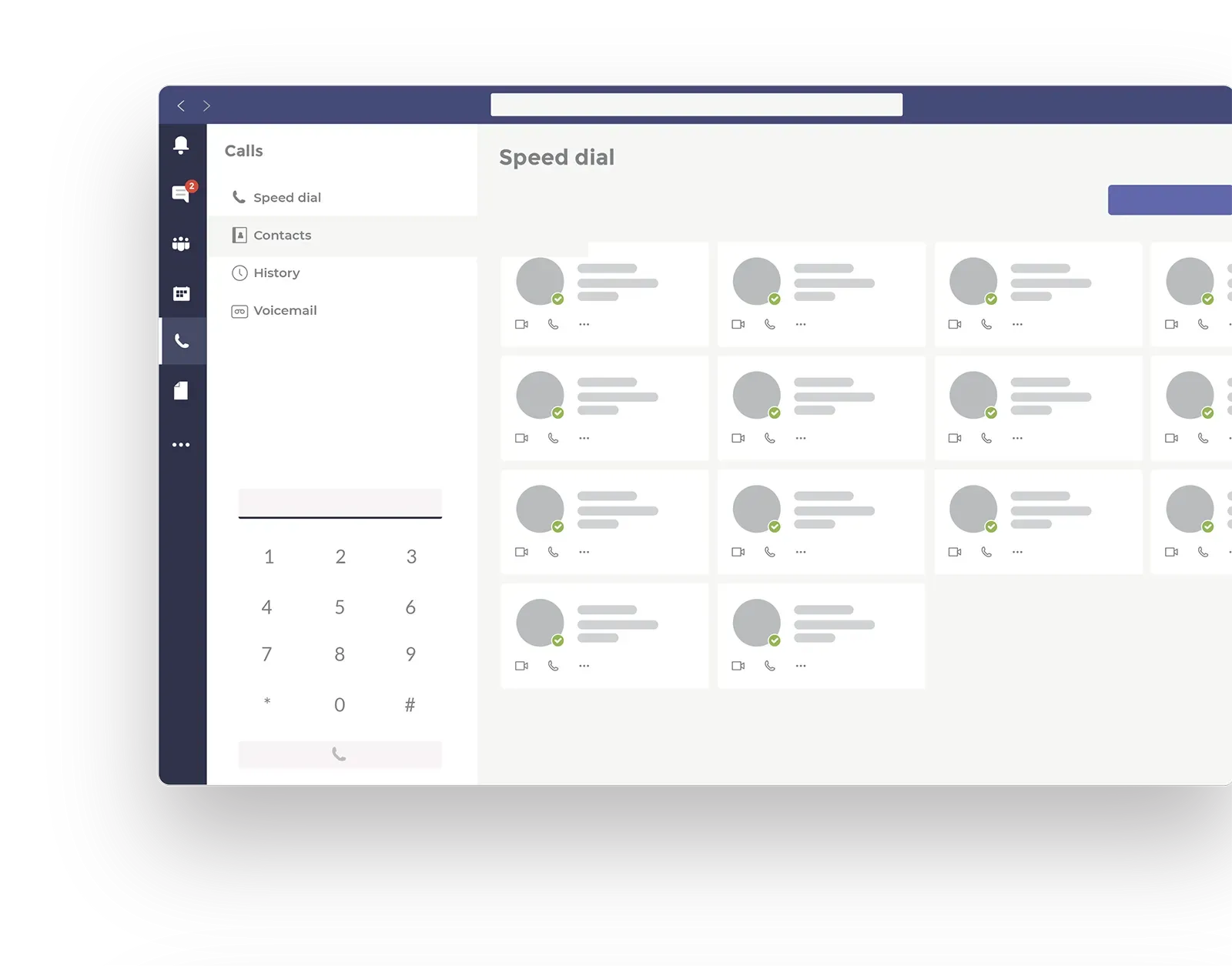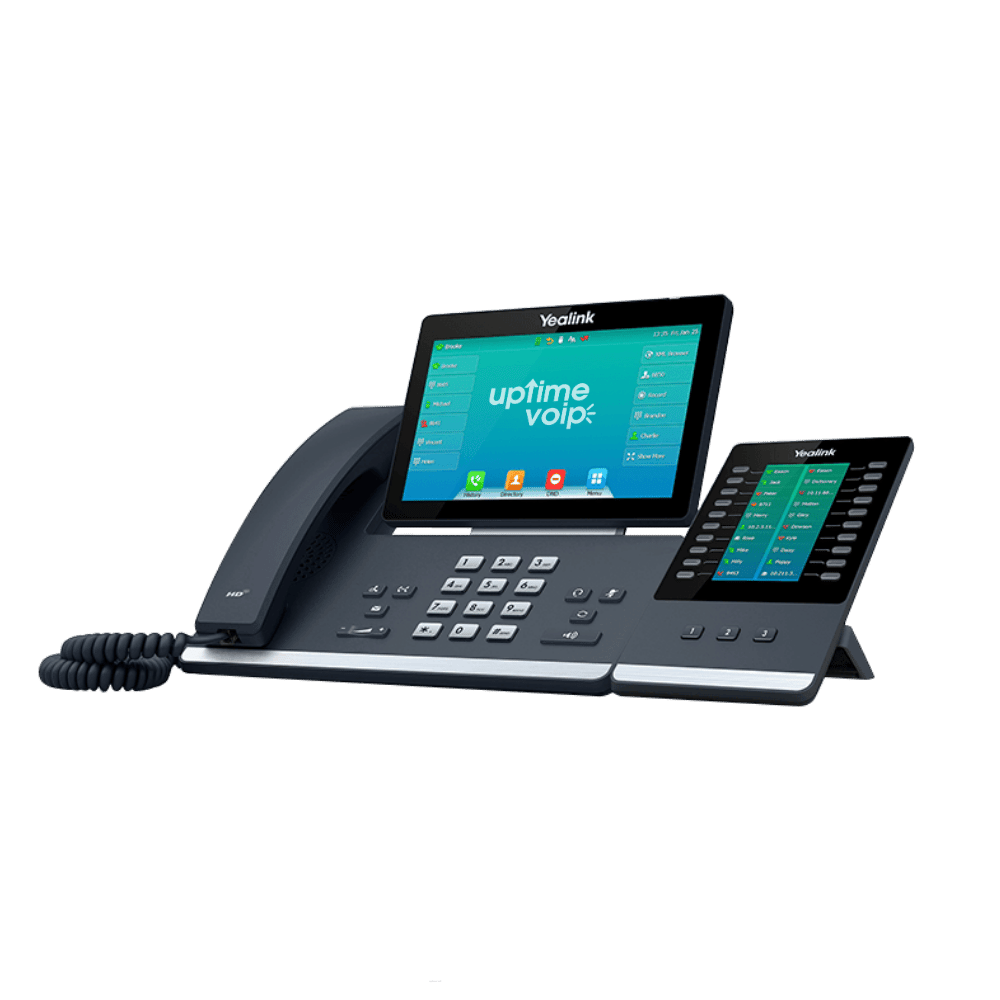
Upgrading from an NEC Business Phone System to Uptime VoIP: Why It Makes Sense
Many businesses have relied on NEC business phone systems to manage their communications. NEC has been a trusted name in PBX systems, providing reliable phone solutions for companies that prefer on-premise infrastructure. However, as business communication needs evolve, many organizations are moving to more modern, cloud-hosted solutions like Uptime VoIP. In this article, we’ll explain how upgrading from NEC to Uptime VoIP can streamline your communication processes, reduce costs, and offer the flexibility you need to grow.
Understanding NEC Business Phone Systems
NEC business phone systems are traditional PBX systems that require on-site hardware installations. These systems offer basic communication features such as voicemail, call forwarding, and conference calling but can be limiting for businesses looking for more advanced tools and features.
Key Aspects of NEC Systems:
• On-site hardware with physical installation requirements
• Basic voice calling and voicemail functions
• Limited scalability and remote work support
• Requires ongoing maintenance and support contracts
While NEC systems have been effective for many years, they are not designed to meet the demands of today’s increasingly remote and cloud-based business environments.
Why Upgrade to Uptime VoIP from NEC Business Phone Systems?
Switching to Uptime VoIP offers a range of benefits, particularly for businesses seeking a more flexible and feature-rich communication system. Here are the reasons why Uptime VoIP is a smart upgrade from NEC’s traditional systems:
1. Cloud-Hosted, No Hardware Needed
With Uptime VoIP, there is no need to install and maintain expensive on-site hardware like NEC systems require. Our cloud-based platform allows businesses to manage their communications from anywhere without dealing with physical equipment or hardware failures.
2. No Costly Maintenance
Traditional NEC systems often require businesses to enter into costly maintenance contracts for support, even for minor changes. In contrast, Uptime VoIP includes free support and automatic feature updates, so you never have to worry about paying for minor adjustments.
3. Advanced Features for Modern Business Needs
NEC systems offer basic functionality, but Uptime VoIP provides a much more comprehensive suite of features:
- Voicemail to Email: Receive voicemails as email attachments for easy access and management.
- Mobile Access: Our mobile app allows your employees to stay connected to the business phone system no matter where they are, offering flexibility NEC cannot match.
- Advanced Call Routing: Set up customized call flows and routing to ensure that calls are directed to the right team or location, seamlessly managing your business’s communication needs.
How Easy Is It to Switch from NEC to Uptime VoIP?
One of the biggest concerns businesses have when switching from a legacy system like NEC to a cloud-based system is the complexity of the transition. Uptime VoIP makes this process simple and stress-free:
- No Downtime: We ensure that there is no interruption in your phone service when making the switch. Your communication will continue as normal throughout the process.
- Keep Your Existing Numbers: Uptime VoIP makes it easy to port your existing phone numbers into the new system, so you don’t need to worry about changing contact information for clients.
- Remote Setup: Because our system is cloud-based, there is no need for on-site installation. All setup and management can be done remotely, minimizing disruption to your daily operations.
Why Uptime VoIP is Better Than On-Site NEC Systems
Uptime VoIP offers businesses a variety of advantages over traditional NEC business phone systems:
1. Scalability and Flexibility: Uptime VoIP allows you to add or remove users with ease as your business grows or changes. NEC systems, by contrast, require significant hardware investments for even small increases in capacity.
2. Cost Savings: NEC systems often come with large upfront hardware costs and ongoing maintenance fees. Uptime VoIP operates on a cost-efficient subscription model with no upfront hardware costs and includes free support and upgrades.
3. Remote Work Capability: With Uptime VoIP, employees can access the system from anywhere via our mobile and desktop apps. This allows for seamless communication in remote or hybrid work environments—something that NEC’s hardware-based systems struggle to support.
4. Real-Time Monitoring and Analytics: Our system provides real-time insights into your call performance, missed calls, and call durations, allowing you to optimize your communication strategy. NEC systems typically lack such detailed analytics.
Make the Switch to Uptime VoIP Today
If your business is currently using an NEC business phone system, now is the perfect time to upgrade to Uptime VoIP. With a cloud-hosted platform, advanced features, and seamless switching, Uptime VoIP can provide your business with the flexibility and cost savings that an on-site PBX system cannot offer.
Upgrading is easy, with no downtime, no hardware costs, and ongoing support included. Contact us today to find out how Uptime VoIP can transform your business communication and help your company thrive.











